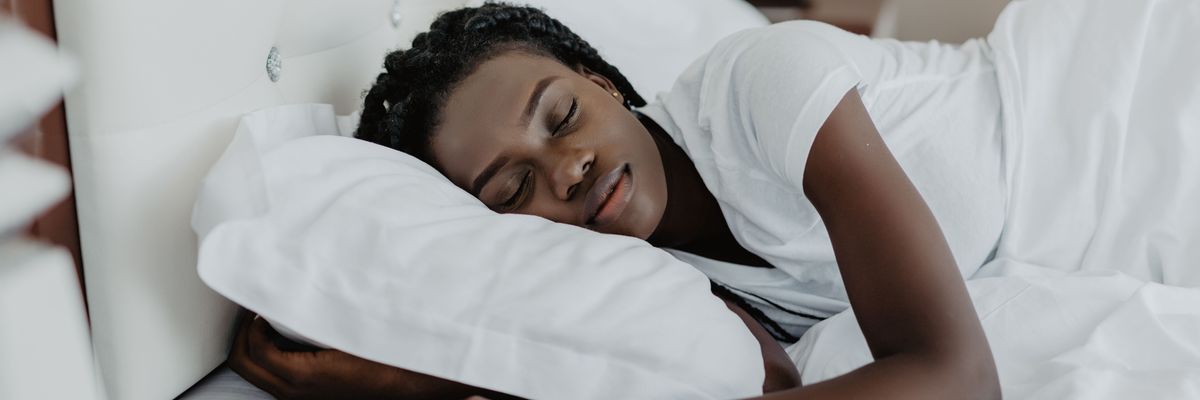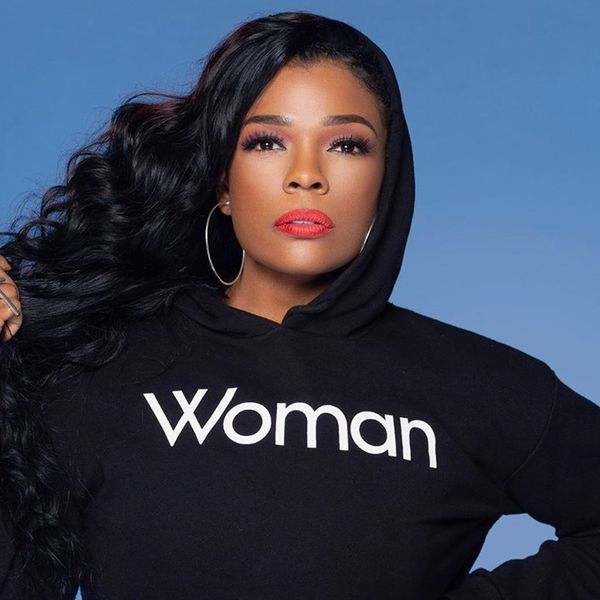
Syleena Johnson's greatest instrument is her voice and has recognized her passion for music since her earliest childhood memories. With a father who was in the entertainment industry as a singer, music was part of her life from an early age and eventually blossomed into her participating in talent shows and showing the world what she was meant to do. "I just finished filming my UNSUNG episode which will premiere on TVOne early 2021 and that will tell the readers a lot about my story and how I began. I am excited for you to see it. It will show you how I got my start in the industry and how I got to where I am now," she spilled to xoNecole about her upcoming project.
As a singer, she has used her voice and songs to uplift women and Black people, but now as a talk show host on Cocktails and Queens on Fox Soul, Syleena is using her voice to empower Black women to demand respect and equality on the other side of the couch. "I am still and will always be a part of music," the former Sister Circle host told me about her transition into being a talk show host, "However, opportunities and God have allowed me to become a talk show host and share my opinions and thoughts as a woman in this world and in entertainment."
Nowadays in her career, Syleena can apply the multitude of lenses to her craft from the talent side to research and development as the interviewer. When she's not on the couch interviewing talent or in the booth making new empowerment anthems, the "Guess What" singer has been working on her latest docuseries project, The Making of a Woman, which was heavily inspired by her recently released Woman album.

Courtesy of Tony Tyus Photography
"This docuseries will show what my experience as a Black woman has been in this industry for over 20 years as well as being a working-class woman, a wife and a mother raising two sons. It will inspire people to see the challenges Black women face on a day-to-day basis and how we overcome it," she explained. "I wanted to show a message and present that in a body of work to create more of a conversation and a call-to-action. I've realized in order to make change, we must create content or use our voice to make a shift in change in our society."
xoNecole had the opportunity to catch up with the Grammy-nominated singer herself about using her voice to uplift women, her new docuseries The Making of a Woman, and being a Black woman in 2020 demanding equal rights in our current racial climate. Check out our conversation below.
xoNecole: Tell me about your docuseries, 'The Making Of A Woman', the messaging and the inspiration behind it.
Syleena Johnson: The docuseries The Making of a Woman is heavily inspired by my recent album, Woman. Each of my albums as a solo artist have been titled after chapters, however with today's racial climate I decided to create the album and docuseries to speak on the struggles and experiences of everyday Black women and what we go through in life in 2020. I created this docuseries to vocally create a body of work that documented the journey of what it took to create this album, mentally, internally and spiritually while sharing the experiences of what women go through like demanding equality and respect, having a voice to even having to work twice as hard as our male counterparts even through pain and adversity.
How does your new studio album, ‘Woman’, directly correlate with the story that you're telling us in the docuseries?
It's my journey, my thoughts and what I and many women endure as a Black woman in society as well as this industry. You'll see me on my journey of completing my album and shooting the video to my lead single off my new album. You'll see the vision that I had to want to highlight how beautiful and special women are. The docuseries speaks on dishonesty, respect and the many examples of inequality Black women face while showing the process of creating a body of work that shares the same message.
How are both releases timely considering our current racial climate?
Right now, we are in the year of the WOMAN. We have a Black woman that is working tirelessly to be the next Vice President of the United States. Black women are on the front lines organizing, protesting and leading the forefront of creating change for our economy and the futures of our next generation. Considering our current climate, both releases vocally tells a story that we still have work to do and are still fighting for respect in 2020. With both releases of my album and docuseries, I wanted to use what I've been seeing in situations like the #MeToo and Time's Up movement, and use my voice and passion in music to be a vessel for other women's stories and journeys.
What do you define as the makings of a woman?
The makings of a woman is the willingness of a woman to grow despite her flaws, despite her mistakes, despite her circumstances and her setbacks in life. The ingredients of the makings of a woman is built up of all the little experiences that you had and how you've handled them and most importantly learned from them. These are the certain experiences you must endure in life to come into your womanhood while helping you grow as a woman.
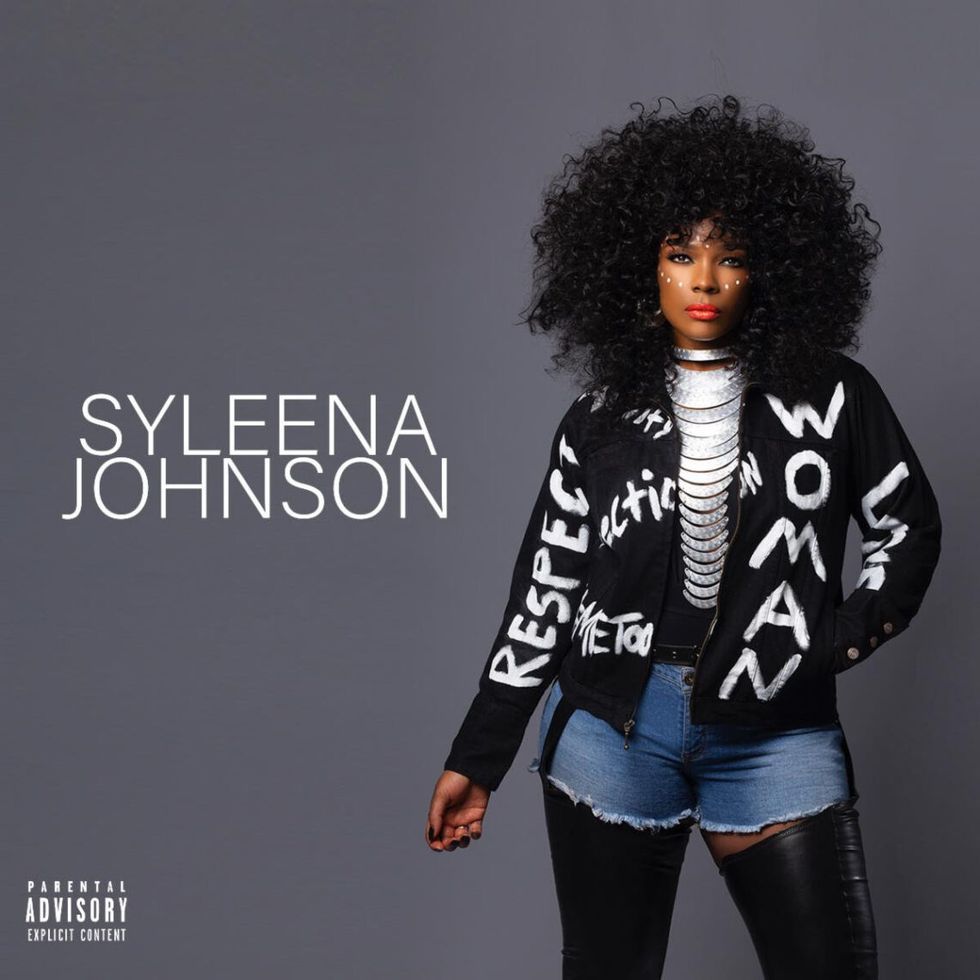
Courtesy of Tony Tyus Photography
"The makings of a woman is the willingness of a woman to grow despite her flaws, despite her mistakes, despite her circumstances and her setbacks in life. The ingredients of the makings of a woman is built up of all the little experiences that you had and how you've handled them and most importantly learned from them."
When do you feel the most "womanly" or the most beautiful as a woman?
I feel the most womanly when I am being a mother to my sons, when I am being a wife. Always working or in business mode does not make me feel like a woman, it makes me tired. I feel more womanly when I can have peace, when I can have "girl time" for myself. I feel the "womanliest" when I can be appreciated and when I am treated like a woman. I feel womanly when I can be heard and valued. More than anything, I feel the "womanliest" when I can operate as a mom and wife without having to be the authoritative figure. When you are a CEO and an entrepreneur you are the authoritative figure but when I come into my household I can relax without having to be the authoritative figure all the time because I have support.
"I feel the most womanly when I am being a mother to my sons, when I am being a wife. Always working or in business mode does not make me feel like a woman, it makes me tired. I feel more womanly when I can have peace, when I can have 'girl time' for myself. I feel the 'womanliest' when I can be appreciated and when I am treated like a woman. I feel womanly when I can be heard and valued."
What is the moment in your life when you believed that you were coming into your own as a woman?
That moment for me was when I got the diagnosis that my youngest son had autism. I developed a level of selflessness that had to take place mentally and emotionally in order for me to grow as a woman. Something like that is supposed to take me out of here and it did, however what that diagnosis did was made me come into my womanhood, turn up my senses as a mother, as a provider. I had to turn up those senses and it made me develop my own personal internal growth spurt. This has allowed me to grow into my womanhood and has taught me to be more patient overall in life. That moment and many life lessons made me understand and be OK with me, unapologetically. It allowed me to love me for who I am and become appreciative of being OK with not being perfect.
There are a lot of conversations around gender and sex. What do you see is the difference between femininity and womanhood, if there is one at all?
What I've learned throughout my own experiences in life is that femininity is a characteristic. Womanhood is a state of mind. Whereas a woman doesn't have to be any of those feminine qualities, and still be a boss, knowing who she is, having a voice, understanding her worth - those are the things that encompass womanhood. Femininity is a characteristic, an accessory. Anyone can be feminine, however it is a characteristic that is interchangeable, whereas womanhood is a growth process, state of mind. A state of being.
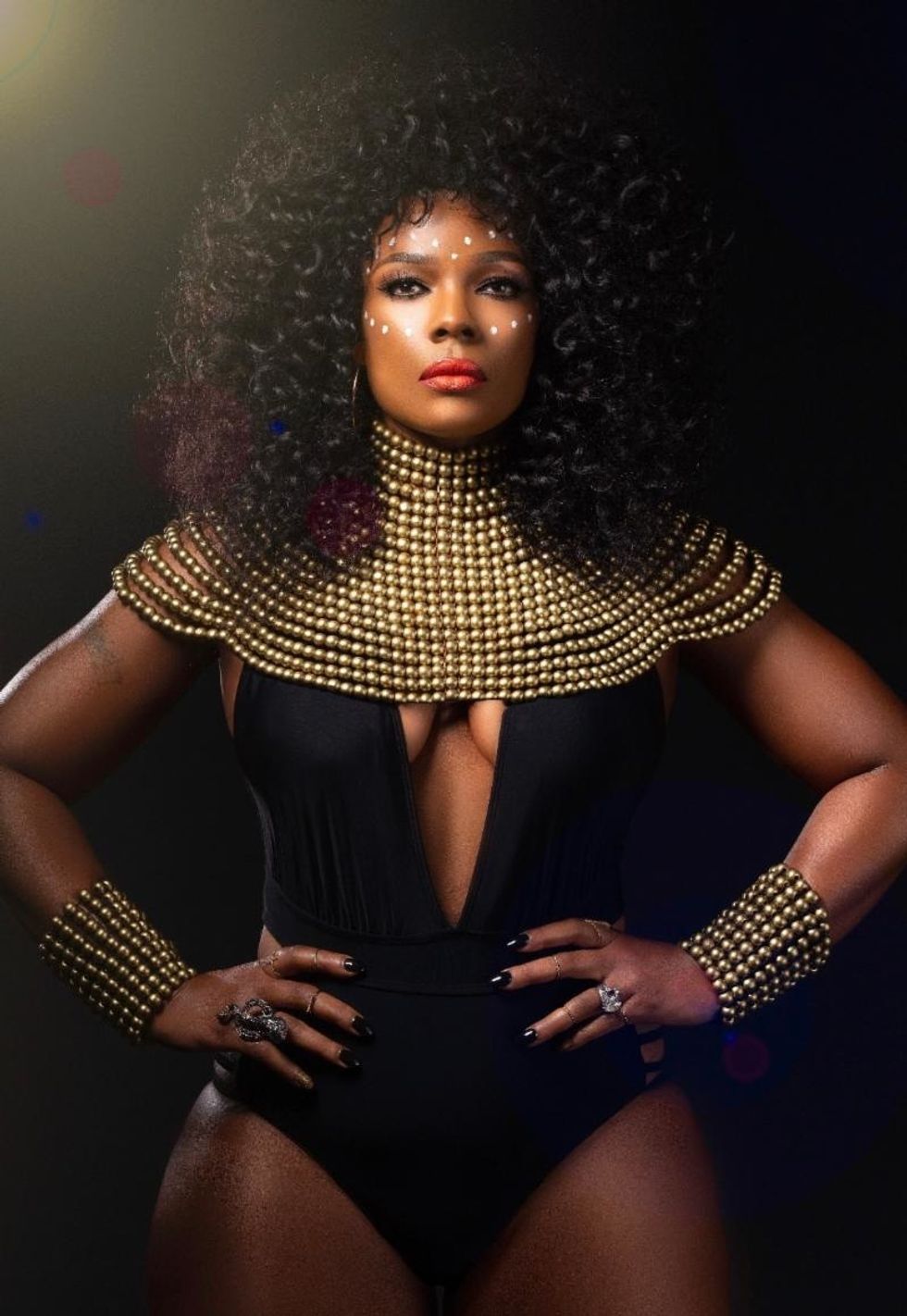
Courtesy of Tony Tyus Photography
"What I've learned throughout my own experiences in life is that femininity is a characteristic. Womanhood is a state of mind. Femininity is a characteristic, an accessory. Anyone can be feminine, however it is a characteristic that is interchangeable, whereas womanhood is a growth process, state of mind. A state of being."
For Black womanhood, what do you believe makes Black women the most powerful and most majestic?
Resilience, our humility, our hearts have made us majestic. The fact that we've endured so much from the test of times has made us extremely powerful and majestic. We are resilient, durable, sustainable. We are smart, we are vociferous, brilliant, studious, meticulous, but we are kind, careful, and multi-layered.
How would you say that you've grown as a singer-songwriter since you first started in the music industry?
I have grown tremendously since coming into the industry and my writing has grown and evolved. I have a different and new sound. I've grown as a woman so I can't stay in the same frame of mind as my other albums. When you're saying different things, you have to stretch out and grow. And that's where I've improved as an artist and singer since first being introduced in the industry.
Being a Black woman in the industry is tough, especially when you're in the spotlight as an artist. How do you manage your mental health and how can the music industry do a better job at protecting Black women?
I manage my mental health by working out and doing stress reduction activities. I am really into fitness and bodybuilding. It allows me to be focused and gain mental clarity. I am also an advocate and use therapy as an outlet to manage my mental health. I have recently embarked on a fitness journey where I competed in a fitness bodybuilding competition which totally improved and helped with my mental health. I was able to not only transform physically losing over 55 pounds but was also able to grow internally within the process.
The music industry can do a better job protecting Black women. The most important thing they can do is listen to Black women. We are not objects. We are not possessions. Listen to Black women and see how they feel, ask are you being heard and valued? Are you being treated fairly? That is how you can protect Black women by listening and valuing us.
If you listen, you learn.
For more of Syleena, follow her on Instagram.
Featured image courtesy of Tony Tyus Photography
This Is How To Keep 'Holiday Season Stress' From Infecting Your Relationship
Hmph. Maybe it’s just me, but it seems like there is something really weird happening in the fall season air (because winter doesn’t officially begin until December 21) that cuddle season is in full swing while break-up season is as well. In fact, did you know that break-ups are so popular during the holiday season that December 11 is deemed Break-Up Day?
The reasons why relationships shift around this time vary; however, I did both roll my eyes and chuckle when I read that a very popular one is because it’s an easy way to get out of getting one’s significant other a Christmas present. SMDH.
Anyway, I personally think that the less shallow folks out here may contemplate calling things “quits” or they at least distance themselves a bit from their partner (and what I’m referring to is serious relationships) due to all of the stress and strain that oftentimes comes with the holidays whether it be financial, familial, due to their tight schedules or something else.
Listen, I would hate for you and your man to miss the fun and happiness of experiencing this time of year, all because you are so overwhelmed or irritated that you can’t really enjoy it. That’s why I have a few practical tips for how to avoid allowing the typical holiday season stress from INFECTING your relationship.
Manage Your Expectations
 Giphy
GiphyUnmanaged expectations. If there is a main reason why the holiday season tends to be so stress-filled for so many people, I’d bet good money that this is the cause. And when you’re in a long-term relationship, expectations can manifest themselves in all sorts of cryptic and/or unexpected ways. You might have relatives who assume that you are going to be with them for Thanksgiving or Christmas when you have other plans in mind. You might be thinking that you are going to spend one amount for presents while your man is thinking something totally different. When it comes to scheduling, your signals may be crossed.
And you know what? To all of these scenarios, this is where clear and consistent communication come in. Don’t assume anything. Don’t dictate anything either. From now until New Year’s, mutually decide to check in once a week, just to make sure that you are both on the same page as it relates to the holidays and what you both are thinking will come along with it. The less blindsided you both feel, the less stressed out you will be. Trust me on this.
Set (and Keep) a Budget
 Giphy
GiphyOkay, so I read that last year, 36 percent of Americans incurred some type of holiday-related debt. Hmph. Last year, there was still some sense of normalcy in this country, chile, so I can only imagine what finances are gonna look like over the next several weeks. That said, since I don’t know a lot of people who don’t find being broke stressful, make sure that you and your bae set a budget and then stick to it this year — no ifs, ands or buts.
Because really, y’all — it doesn’t make sense to deplete savings and/or max out credit cards for a few days of giggles only to be damn near losing your mind because you don’t know how to make ends meet come Dr. Martin Luther King, Jr. Day.
And by the way, this tip doesn’t just speak to things like food and gifts; I also mean travel. If it doesn’t make a ton of sense (or cents) to be all over the place this year — DON’T BE.
Keep Matthew 5:37 at the Forefront
 Giphy
GiphyIf off the top of your head, you don’t know what Matthew 5:37 says, no worries, here ya go: “But let your ‘Yes’ be ‘Yes,’ and your ‘No,’ ‘No.’ For whatever is more than these is from the evil one.” That verse right there? Oh, it’s a boundaries lifesaver! I say that because do you see “maybe” or “I’ll think about it” in there? Nope. LOL. It says that you should tell people “yes” or “no” and leave it at that — and that complements Anne Lamott’s quote, “’No’ is a complete sentence” impeccably well. Yeah, you’ve got to remember that anything beyond a yes or no to a request is privileged information; you don’t owe anyone details or an explanation.
Besides, if you are really honest with yourself, when someone asks you something and you give a “Umm, let me think about it” kind of reply, more times than not, you already know what your answer is going to be — so why not let you both off of the hook? Give your response. Commit to that. And let everyone (including yourself) get on with their lives and schedules.
I promise you that when it comes to those holiday parties, you are pissing more folks off by not RSVP’ing or doing so and not showing up than just saying, “Thank you but not this year” off the rip.
Remember That Your Personal Space Is Privilege Not a Right
 Giphy
GiphyA friend of mine recently bought a new house and invited me over to come see it. He’s a single man with no children, so as I was taking in all of the space that he had, especially as I walked through his finished basement, I joked about relatives coming to live with him. “Hell no” and “absolutely not” were pretty much his immediate responses as he went on to say that some folks even had the nerve to be offended when he told them that he had no intentions on taking DNA in.
Ain’t it wild how people think that your stuff is their right? And yes, that brings me to my next point. Your home is your sanctuary space. If you want to host folks this year — cool. If not, ALSO COOL. Please don’t let folks (family included) guilt you into how they want you to act or even into what they would do if the shoe was on the other foot. You are not them — and as one of my favorite quotes states, “If two people were exactly alike, one of them would be unnecessary.” (A man by the name Larry Dixon said that.)
Hell, my friends? They know that I am good for sending them random things that they need or even want all throughout the year. Coming over to hang out at my pace, though. Uh-uh. Chalk it up to being a card-carrying member of the ambivert club yet I like keeping my living space personal — and I sleep like a baby, each and every night, for feeling that way.
Always remember that your space, your time, your resources, your energy and shoot, yourself period (including your relationship), are all things that are your own. You get to choose how, when and why you want to share them. The holiday season is certainly no exception.
Cultivate Some “You Two Only” Traditions
 Giphy
GiphyIt’s not uncommon for some couples to hit me up after the holiday season to “detox.” Sometimes it’s due to the financial drama (and sometimes trauma) that they experienced. Sometimes it’s because they allowed their relatives (especially in-laws) to get more into their personal business than they should’ve. More than anything, though, it tends to be because they didn’t get enough quality time together and so ended up feeling “disconnected.”
Please don’t let that happen. Listen, I’m not even a holidays kind of woman and yet, I will absolutely sit myself down with some hot chocolate and chocolate chip cookies to enjoy a Hallmark holiday film or two. Aside from the fact that most of them are lighthearted and sweet, I also like that they usually focus on couples loving on each other amidst all of the holiday beauty and ambiance — which is something that all couples should set aside some time to do.
Maybe it’s a vacation. Maybe it’s a staycation. Or maybe it’s my personal favorite, A SEXCATION. Whether it’s for a few days, the weekend or even overnight — don’t you let the holidays go by without setting aside time for you and your man to celebrate one another. Don’t you dare (check out “Are You Ready To Have Some Very Merry 'Christmas Sex'?”).
GET. SOME. REST.
 Giphy
GiphyI once read that 8 out of 10 people get stressed out over the holidays and 3 out of 10 lose sleep during to it — and when you’re stress-filled and sleep-deprived, that can absolutely lead to hypersensitivity, making mountains out of molehills and even not being in the mood for sex.
Your relationship can’t afford to go through any of this, so definitely make sure to prioritize rest. I don’t care how unrealistic it might seem during this time, sleep should never be seen as a luxury; it will always and forever be a great necessity.
That said, try to get no less than six hours of shut-eye in (check out “6 Fascinating Ways Sex And Sleep Definitely Go Hand In Hand”) and even ask your bae to take a nap with you sometimes (check out “Wanna Have Some Next-Level Sex? Take A Nap, Sis.”). Not only will sleep help to restore your mind, body and spirit but, when it’s with your partner, it’s an act of intimacy that can make you both feel super connected, even in the midst of what might feel like chaos.
___
Holiday season stress is real. Still, never give it the permission or power to throw your relationship off. Put you and your man first and let the holidays be what they are gonna be, chile.
Let’s make things inbox official! Sign up for the xoNecole newsletter for love, wellness, career, and exclusive content delivered straight to your inbox.
Featured image by Shutterstock
While doing a podcast interview a couple of weeks ago, when I said my age, the interviewer complimented me by saying that what I said is not what they would’ve guessed. When they asked what the secret was, the first thing that came out of my mouth was, “Oh, I’m gonna take me a nap.”
I adore sleep. I’ve said before that it’s like what Six Flags is to some people. And really, it’s just a plus that there are so many health benefits from getting plenty of rest. Beauty-wise, science does reveal that getting no less than seven hours a night can slow down signs of aging. Know what else? There are some direct things that sleep — and the lack thereof — can do to your immunity as well.
And so, since this is the time of year when catching a cold (and/or the flu) is common, let’s talk about the impact that sleep (and again, a lack thereof) has on your immune system. That way, you can remain as healthy as possible during the fall and winter seasons.
1. Less Sleep Means More Colds
 Giphy
GiphyLike I stated in the intro, I’m pretty sure you’ve heard somewhere that the fall and winter are the seasons when people are most susceptible to catching a cold or coming down with the flu. And that’s exactly why I thought I would start this all off by sharing the fact that some studies reveal that if you get less than six hours of sleep, on a consistent basis, you end up making yourself more vulnerable to coming down with both. In fact, some research says that only 18 percent of people who get six-plus hours of rest caught a cold while almost 40 percent who got less than that did.
The logic behind it all is sleep gives your body time to build up the proteins and cells (like cytokines and T-cells) that you need to fight off certain viruses. So, if nothing bothers you more than having a stuffy nose or stubborn cough when it’s cold outside, getting more sleep is one way to prevent that from happening to you.
2. Less Sleep Means More Allergy Symptoms
 Giphy
GiphyAt the end of the day, an allergy is basically what transpires whenever your immune system “overreacts” to something that other people’s systems do not. And since sleep is what helps to keep your immune system nice and strong — well, I’m sure you get how less allergy-related symptoms and more sleep go hand in hand. Also, since sleep helps to decrease bodily inflammation (more on that in a bit) and inflammation can also intensify allergy symptoms, that’s just one more reason to get as much shut-eye as possible.
3. Less Sleep Means Potential Diabetes and Heart Disease
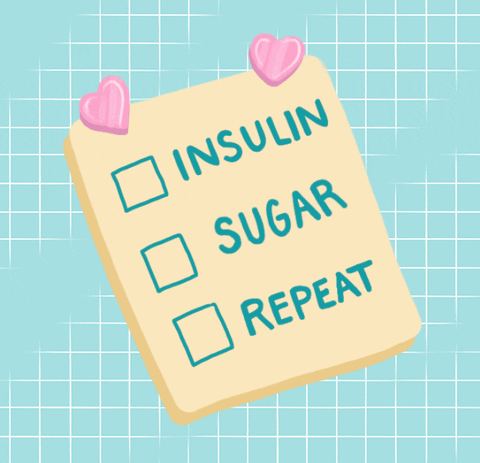 Giphy
GiphyDid you know that in 2024, Black women were diagnosed with diabetes 24 percent more than any other adult demographic. Also, it continues to be a reality that heart disease is the leading cause of death for Black women. These two sobering statistics alone should be enough of an incentive to do whatever you can to keep the risk of diabetes and heart disease way down.
One way to do that is by getting more sleep. Aside from the fact that sleep strengthens your immune system to where it is easier for you to fight off illness and diseases, sleep can keep your blood sugar levels in a healthy space; plus, when it comes to your heart, it gives it, along with your arteries and blood vessels a break.
4. Less Sleep Means Less Time for Your Body to Push “Reset”
 Giphy
GiphyIf you really stopped to consider all that your body goes through during the day (you can read some about that here), you definitely would respect it enough to do your best to thank it by giving it no less than six hours of sleep, each and every night. Sleep is what helps to slow your brain and body down so they are able to “refuel” for the next day. After all, how can your body prevent you from getting sick if your immune system is too worn out to fight ailments off? Exactly.
5. More Sleep Helps You to Fight Off Infections
 Giphy
GiphySpeaking of, in order for your body to fight off infections, there are certain cells and antibodies within you that need to be healthy and strong — one way that they get and stay that way is by you getting a good amount of sleep. For instance, remember when I touched on cytokines earlier? Well, the same way that they help to prevent colds, they also help to prevent infections too. And since sleep lowers your cortisol (stress) levels, rest gives your body the time and space to build up an army that can fight off free radicals and other health-related challenges while you are awake.
6. More Sleep Lowers Bodily Inflammation
 Giphy
GiphyWhenever a health-related issue is mentioned on this platform, inflammation is something that is mentioned quite a bit. Probably the easiest way to explain inflammation is it’s how your body responds/reacts whenever something is happening to your body that shouldn’t be, whether it’s an illness, an injury, a germ or something that you may be allergic to.
If you happen to have chronic inflammation, some symptoms that are associated with that include fatigue, stiff joints, skin rashes, weight gain and moodiness.
The interesting thing about all of this is if you aren’t getting enough rest, you could be triggering inflammation in your body. That’s because studies reveal that a lack of sleep can elevate molecules that are associated with inflammation. So, if you don’t want inflammation to increase within your system, you should definitely catch more zzz’s.
7. More Sleep Regulates Hormones
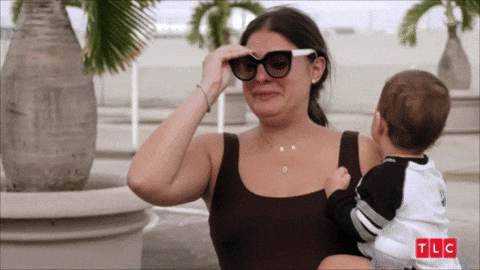 Giphy
GiphyWhen it comes to hormones like serotonin, estrogen and cortisol, believe it or not, they play a role in how your immune system acts and overreacts. That’s because, if your hormones are out of balance, that can cause your immune system to work harder than it actually should and that can make you more vulnerable to sickness. One way to keep your hormones leveled out? SLEEP.
That’s because sleep gives your body the opportunity to rest, repair and restore your hormone levels. On the other hand, when you are sleep deprived, that can put/keep your hormones on the ultimate roller coaster ride. #notgood
8. More Sleep Strengthens Vaccines
 flu shot GIF - Find & Share on GIPHYGiphy
flu shot GIF - Find & Share on GIPHYGiphyIf you’re someone who is good for getting some sort of vaccine around this time of the year, make sure that you rest up before and after getting your shots. Not only does adequate rest before a vaccination help your immune system to be better receptive to your shots but sleep also helps your body to build up enough antibodies to make your vaccinations effective after getting them. Because if you’re gonna get pricked, shouldn’t it be worth it? My thoughts exactly.
Get some freakin’ sleep! Your immune system depends on it.
Let’s make things inbox official! Sign up for the xoNecole newsletter for love, wellness, career, and exclusive content delivered straight to your inbox.
Featured image by Shutterstock









